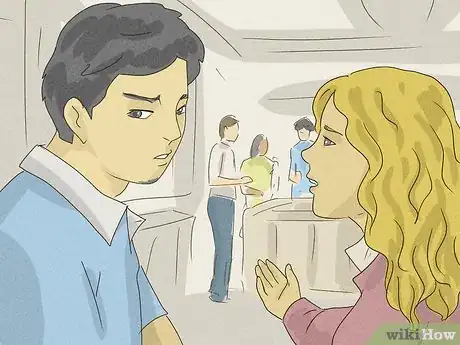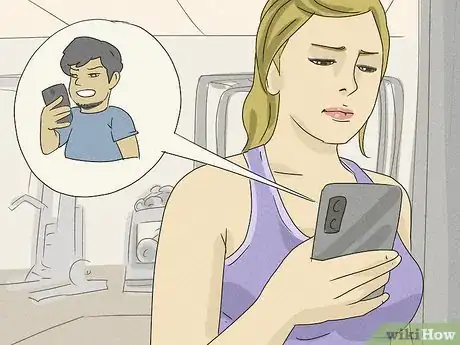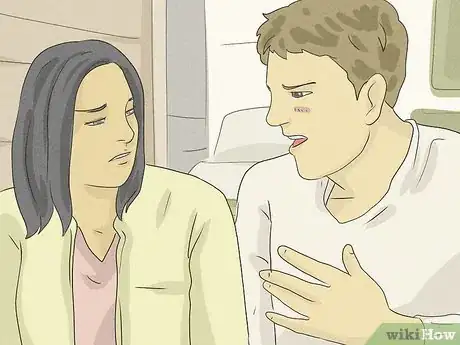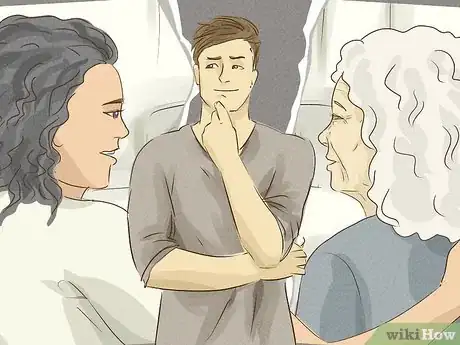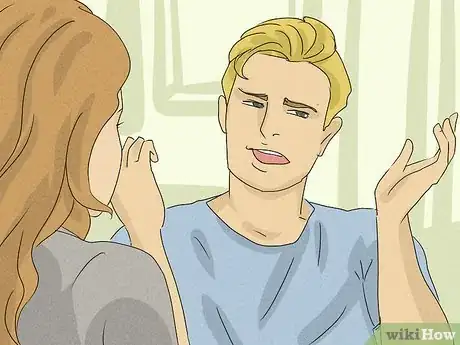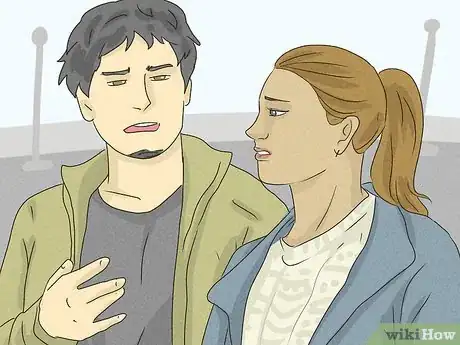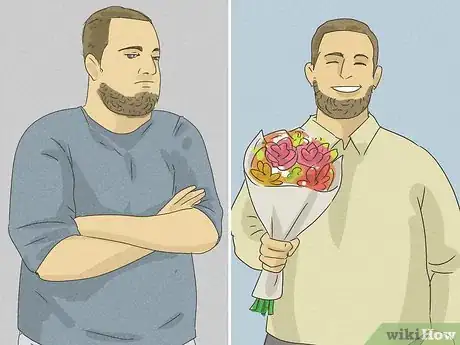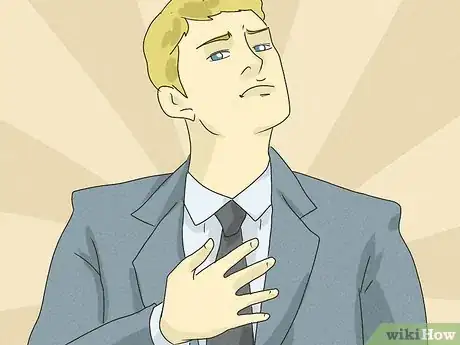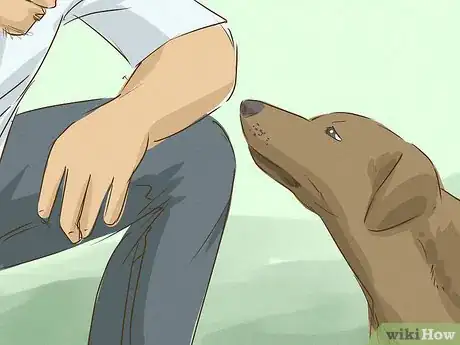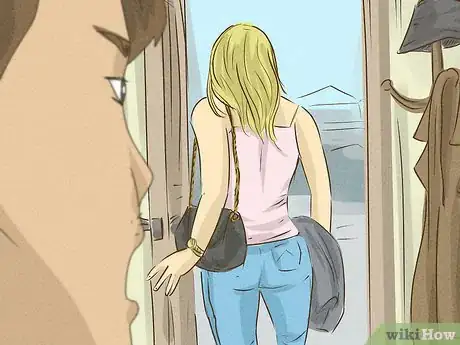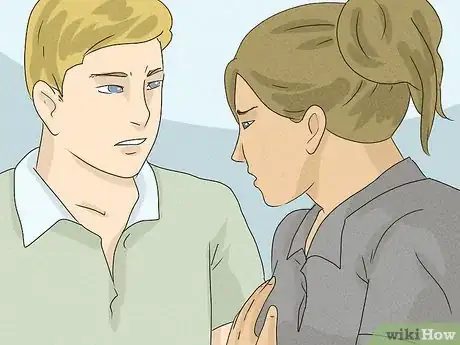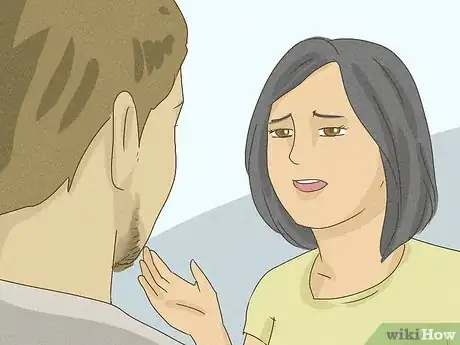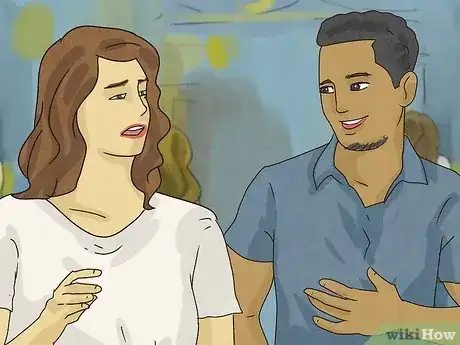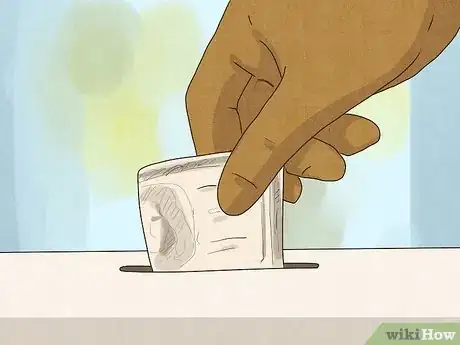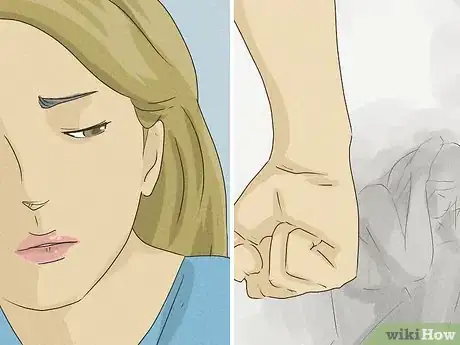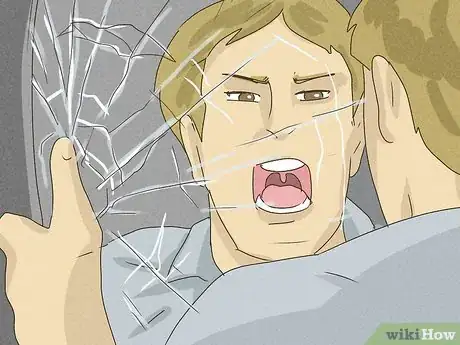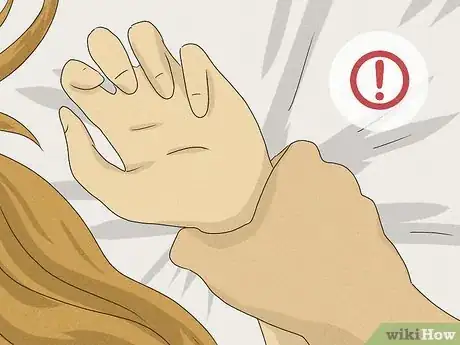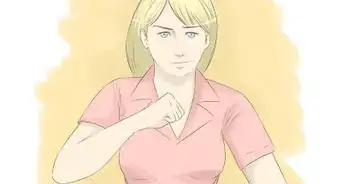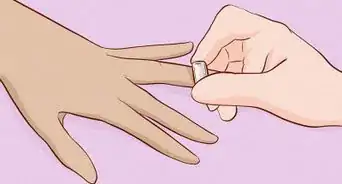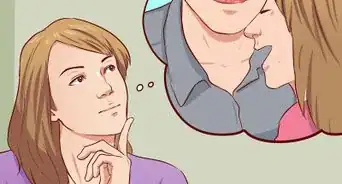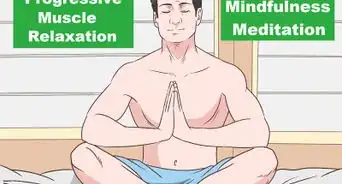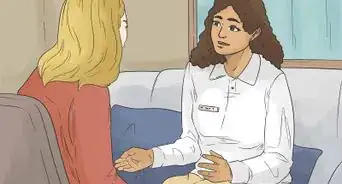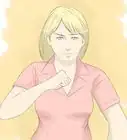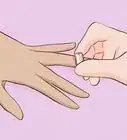This article was co-authored by Moshe Ratson, MFT, PCC and by wikiHow staff writer, Danielle Blinka, MA, MPA. Moshe Ratson is the Executive Director of spiral2grow Marriage & Family Therapy, a coaching and therapy clinic in New York City. Moshe is an International Coach Federation accredited Professional Certified Coach (PCC). He received his MS in Marriage and Family Therapy from Iona College. Moshe is a clinical member of the American Association of Marriage and Family Therapy (AAMFT), and a member of the International Coach Federation (ICF).
There are 11 references cited in this article, which can be found at the bottom of the page.
wikiHow marks an article as reader-approved once it receives enough positive feedback. This article has 17 testimonials from our readers, earning it our reader-approved status.
This article has been viewed 631,032 times.
When you first meet an abusive man, he can seem like your knight in shining armor. Wouldn’t it be great if you could see through his facade? We’re here to help you figure out if your guy is really a prince—or if he’s hiding his true nature. We’ll tell you all the signs that a man will become abusive so it’ll be easy for you to protect yourself. You deserve to feel loved and supported by your partner, so don’t accept a man who doesn’t treat you well.
Things You Should Know
- Abusers usually start off being really kind to you and want you to commit quickly.
- If you find out he’s been abusive in the past, that’s a big red flag that he might abuse you, too.
- A man who yells at your or puts you down is being abusive.
- Your man is definitely abusive if he’s violent toward you.
Steps
Expert Q&A
-
QuestionWhat resources are available if you're in an abusive relationship?
 Moshe Ratson, MFT, PCCMoshe Ratson is the Executive Director of spiral2grow Marriage & Family Therapy, a coaching and therapy clinic in New York City. Moshe is an International Coach Federation accredited Professional Certified Coach (PCC). He received his MS in Marriage and Family Therapy from Iona College. Moshe is a clinical member of the American Association of Marriage and Family Therapy (AAMFT), and a member of the International Coach Federation (ICF).
Moshe Ratson, MFT, PCCMoshe Ratson is the Executive Director of spiral2grow Marriage & Family Therapy, a coaching and therapy clinic in New York City. Moshe is an International Coach Federation accredited Professional Certified Coach (PCC). He received his MS in Marriage and Family Therapy from Iona College. Moshe is a clinical member of the American Association of Marriage and Family Therapy (AAMFT), and a member of the International Coach Federation (ICF).
Marriage & Family Therapist There are many resources available for abused individuals, including crisis hotlines, counseling, shelters, legal services, childcare, and job training. By reaching out to these places today, you can gain greater confidence in leaving the abusive relationship when you’re ready.
There are many resources available for abused individuals, including crisis hotlines, counseling, shelters, legal services, childcare, and job training. By reaching out to these places today, you can gain greater confidence in leaving the abusive relationship when you’re ready. -
QuestionHow can I overcome the fear of leaving?
 Moshe Ratson, MFT, PCCMoshe Ratson is the Executive Director of spiral2grow Marriage & Family Therapy, a coaching and therapy clinic in New York City. Moshe is an International Coach Federation accredited Professional Certified Coach (PCC). He received his MS in Marriage and Family Therapy from Iona College. Moshe is a clinical member of the American Association of Marriage and Family Therapy (AAMFT), and a member of the International Coach Federation (ICF).
Moshe Ratson, MFT, PCCMoshe Ratson is the Executive Director of spiral2grow Marriage & Family Therapy, a coaching and therapy clinic in New York City. Moshe is an International Coach Federation accredited Professional Certified Coach (PCC). He received his MS in Marriage and Family Therapy from Iona College. Moshe is a clinical member of the American Association of Marriage and Family Therapy (AAMFT), and a member of the International Coach Federation (ICF).
Marriage & Family Therapist Being afraid is natural. You'll fear your partner, you'll be concerned for your kids, you'll fear the uncertainty. Yet, you must face those fears by knowing you are doing what is right. Remind yourself that leaving is an opportunity to grow and start a better life. It's also helpful to create a safety plan in advance so you feel more prepared to leave. Locate a safe place to stay, prepare what you need and be ready to leave, and inform trusted individuals of what's going on.
Being afraid is natural. You'll fear your partner, you'll be concerned for your kids, you'll fear the uncertainty. Yet, you must face those fears by knowing you are doing what is right. Remind yourself that leaving is an opportunity to grow and start a better life. It's also helpful to create a safety plan in advance so you feel more prepared to leave. Locate a safe place to stay, prepare what you need and be ready to leave, and inform trusted individuals of what's going on. -
QuestionShould I keep track or log any instances of my boyfriend's abusive behavior?
 Moshe Ratson, MFT, PCCMoshe Ratson is the Executive Director of spiral2grow Marriage & Family Therapy, a coaching and therapy clinic in New York City. Moshe is an International Coach Federation accredited Professional Certified Coach (PCC). He received his MS in Marriage and Family Therapy from Iona College. Moshe is a clinical member of the American Association of Marriage and Family Therapy (AAMFT), and a member of the International Coach Federation (ICF).
Moshe Ratson, MFT, PCCMoshe Ratson is the Executive Director of spiral2grow Marriage & Family Therapy, a coaching and therapy clinic in New York City. Moshe is an International Coach Federation accredited Professional Certified Coach (PCC). He received his MS in Marriage and Family Therapy from Iona College. Moshe is a clinical member of the American Association of Marriage and Family Therapy (AAMFT), and a member of the International Coach Federation (ICF).
Marriage & Family Therapist Yes, you should create a journal (and keep it in a safe place) and log all abusive incidences, registering dates, times, events, and threats made, if possible. You should also keep any evidence of abuse, such as pictures of injuries, texts, emails, etc, to build a case against your boyfriend.
Yes, you should create a journal (and keep it in a safe place) and log all abusive incidences, registering dates, times, events, and threats made, if possible. You should also keep any evidence of abuse, such as pictures of injuries, texts, emails, etc, to build a case against your boyfriend.
Warnings
- Be prepared for an abusive guy to apologize and act like a changed man. In most cases, these changes are temporary, so keep your guard up.⧼thumbs_response⧽
- Don’t stay with a guy if you suspect he may be abusive. His behavior will likely get worse, and it’ll get harder to leave as time goes on.[27]⧼thumbs_response⧽
References
- ↑ https://www.southwestern.edu/live/files/3781-warning-signs-of-an-abusive-personpdf
- ↑ https://www.psychologytoday.com/us/blog/anger-in-the-age-entitlement/200812/are-you-dating-abuser
- ↑ https://www.southwestern.edu/live/files/3781-warning-signs-of-an-abusive-personpdf
- ↑ https://www.southwestern.edu/live/files/3781-warning-signs-of-an-abusive-personpdf
- ↑ https://www.helpguide.org/articles/abuse/domestic-violence-and-abuse.htm
- ↑ https://www.mayoclinic.org/healthy-lifestyle/adult-health/in-depth/domestic-violence/art-20048397
- ↑ https://www.rainn.org/news/early-warning-signs-dating-violence
- ↑ Moshe Ratson, MFT, PCC. Professional Therapist. Expert Interview. 7 August 2019.
- ↑ https://www.psychologytoday.com/us/blog/anger-in-the-age-entitlement/200812/are-you-dating-abuser
- ↑ https://www.mayoclinic.org/healthy-lifestyle/adult-health/in-depth/domestic-violence/art-20048397
- ↑ https://www.helpguide.org/articles/abuse/domestic-violence-and-abuse.htm
- ↑ https://www.healthdirect.gov.au/domestic-violence-and-abusive-relationships
- ↑ https://www.psychologytoday.com/us/blog/anger-in-the-age-entitlement/200812/are-you-dating-abuser
- ↑ https://ncadv.org/signs-of-abuse
- ↑ https://www.healthdirect.gov.au/domestic-violence-and-abusive-relationships
- ↑ https://au.reachout.com/articles/signs-of-an-abusive-relationship
- ↑ https://www.urmc.rochester.edu/encyclopedia/content.aspx?contenttypeid=1&contentid=2990
- ↑ https://www.helpguide.org/articles/abuse/domestic-violence-and-abuse.htm
- ↑ https://ncadv.org/signs-of-abuse
- ↑ https://www.helpguide.org/articles/abuse/domestic-violence-and-abuse.htm
- ↑ https://www.mayoclinic.org/healthy-lifestyle/adult-health/in-depth/domestic-violence/art-20048397
- ↑ https://www.healthdirect.gov.au/domestic-violence-and-abusive-relationships
- ↑ https://www.helpguide.org/articles/abuse/domestic-violence-and-abuse.htm
- ↑ https://www.helpguide.org/articles/abuse/domestic-violence-and-abuse.htm
- ↑ Moshe Ratson, MFT, PCC. Professional Therapist. Expert Interview. 7 August 2019.
- ↑ Moshe Ratson, MFT, PCC. Professional Therapist. Expert Interview. 7 August 2019.
- ↑ https://www.helpguide.org/articles/abuse/getting-out-of-an-abusive-relationship.htm
About This Article
To recognize the signs of an abusive man, pay close attention if he is too quick to become exclusive or shows signs of intense jealousy, since this indicates the extreme behaviors common in abusers. Try talking to him about feelings, and monitor his reaction, because abusers often struggle to talk about emotions. If he shows signs of violence, like punching walls, or has a history of abuse, those are strong signs that he will continue abusive behavior in your relationship. To learn more from our Professional Counselor co-author, like how to evaluate your relationship, keep reading the article!



